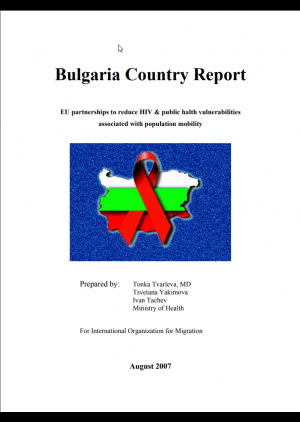The free movement of people, goods and services is perceived to be a pillar of the sustained development of the European Union. At the same time Europe is facing continuous ageing of the population, and increased immigration flows over the last decade, which have become driving forces for the demographic changes, especially in EU 25. Furthermore, population mobility naturally entails challenges from the common strategy and policy, legislation, human rights and public health. Migration increases vulnerability to infectious diseases, and in particular HIV and Tuberculosis. Therefore, HIV and migration should be brought to EU agendas as part of broader public health and social policies. Bulgaria, as a new member state and external EU border, also faces these challenges as it is expected that mobility will increase in two directions – internal (within the EU, mainly by young people emigrating from Bulgaria) and external (people from third countries immigrating to Bulgaria).
Content:
- Methodology of the Country Case Study
- Highlights
- HIV, TB and Migration: Country Context Review of Policy and Legal Framework
- Migration Policy and Legal Context
- HIV/AIDS Epidemiological Context
-
TB Epidemiological Context
-
Country Migration Profile
-
Rapid Participatory Assessment
-
Conclusions and Recommendations
